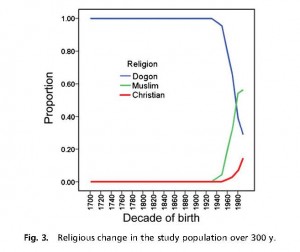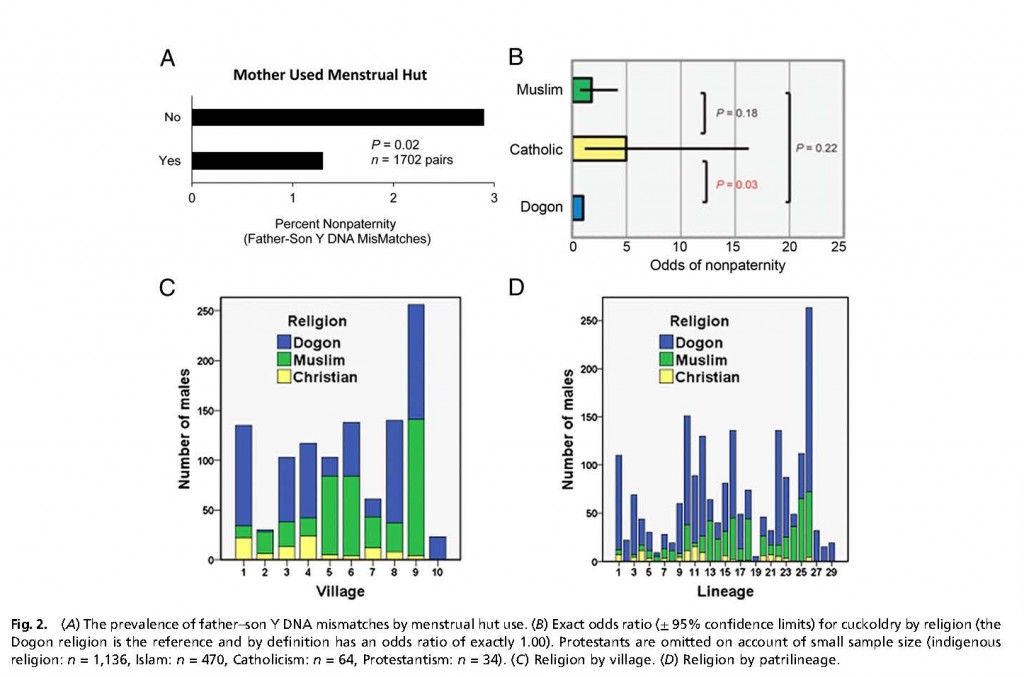An article from 2012 by Beverly Strassmann & colleagues is the first piece I think I’ve read that connects religious signaling to actual reproductive fitness, instead of merely group commitment (not that there’s anything wrong with that). They analyzed genetic data from 1,706 father-son pairs from 10 Dogon villages in West Africa with 29 overlapping patrilineages & found a significantly lower rate of cuckoldry among those practicing the indigenous Dogon religion than among those practicing Catholicism. There was no significant difference between the indigenous religion & Muslims or between Catholics & Muslims (& there were too few Protestants to sample–they should come to Alabama).
The significance of all this is in what is essentially the practice of patrilineage mating guarding via menstrual huts institutionalized in the traditional religion. Women are exiled to a hut near their husband’s family for 5 days during their menstruation & coerced to stay there via threat of supernatural punishment. Hormonal data indicate women internalize this fear (no details on this, but it points to a 1992 Strassmann paper) & thus to willingly to the huts, sending an honest signal of fertility & fidelity. The Dogon do not practice contraception, & women rarely menstruate because pregnancy quickly follows the periods of lactational amenorrhea. But when she goes to the menstrual hut, the husband’s family is informed of her “cuckoldry risk” & precautions against it “include postmenstrual copulation initiated by the husband and enhanced vigilance by his family.”
The authors suggest that Islam does not jeopardize paternal certainty because it has adapted other measures to replace the menstrual hut, which, because transition to Christianity is more recent, have not yet taken place among those converts. Additionally, though not statistically predicative of paternal certainty, Christians tend to be poorer Dogon, who may choose it less for the sexual freedom it affords women so much as the affordable alternative to the indigenous practices, because its ritual costs are far less (the Dogon religion is unpopular for a variety of reasons among the urbanites & those who migrate to the cities).

